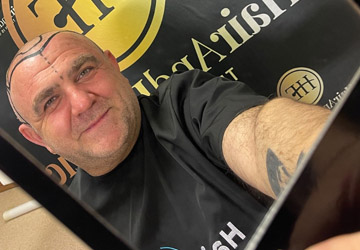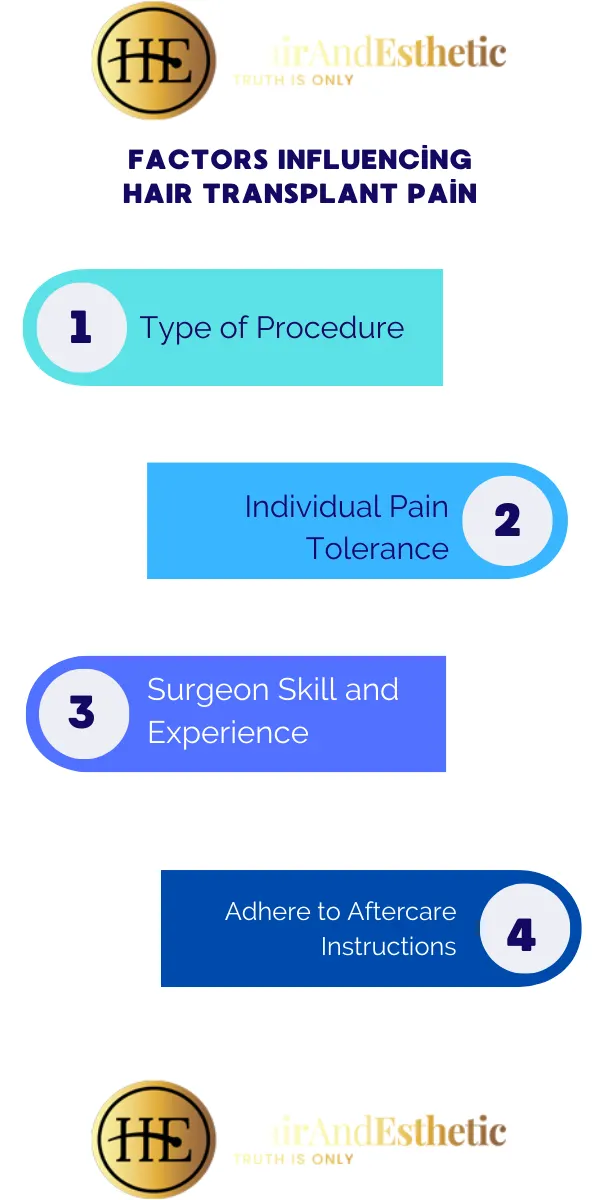Is hair transplant painful in Turkey?
No, hair transplant Turkey is generally not painful. Loss of hair can be distressing for many individuals, impacting self-confidence and overall well-being. Although there are various treatments available for combatting this condition, transplantation often stands out as an effective solution to achieve fuller tresses. But is hair transplant painful? Let's investigate this further to answer this question.

Pain during the procedure
Hair transplant surgery can be completed successfully under local anesthesia, so you should remain awake yet will experience no pain during the operation. This is accomplished via injecting directly into your scalp in order to numb it before beginning; some individuals might find this uncomfortable; but once underway it should be painless.
Pain After the Procedure
Once anesthesia wears off, you may experience some soreness or discomfort in the areas treated. This pain may feel similar to having been scratched by various needles during surgery; however, its intensity varies significantly according to individual and typically subsides within 24 hours or two days.
What is the most painful part of a hair transplant?
Right after FUE or DHI hair transplantation is the most painful part of a hair transplant. It is normal to feel pain and stinging in both the donor and transplantation area. Your doctor recommends painkillers to relieve the pain. Pain may be felt in the first 7 days after the surgery. You should follow your doctor's advice on this matter.Factors Influencing Pain:

Factors Influencing Pain
Numerous factors can affect the level of pain experienced after hair transplant surgery:
Type of Procedure
Follicular Unit Transplantation (FUT) involves making one linear incision that may cause more discomfort than Follicular Unit Extraction (FUE), which involves smaller individual extractions of individual follicular units.
Individual Pain Tolerance
Everyone experiences discomfort differently during recovery.
Surgeon Skill and Experience
Hiring an experienced surgeon can reduce tissue damage and discomfort during procedures.
Adhere to Aftercare Instructions
Adherence to aftercare instructions can significantly decrease pain and facilitate healing after undergoing hair transplant surgery, and improve results.
Reducing Pain After Hair Transplant
However, several strategies can help relieve pain and discomfort after hair transplant surgery:
- Over-the-counter painkillers like ibuprofen or acetaminophen can effectively manage mild to moderate discomfort.
- Ice packs provide temporary relief of inflammation and pain by reducing swelling.
- Sleeping with your head elevated on pillows also helps decrease swelling while increasing blood flow for better pain management.
- Engaging in strenuous physical activity can increase blood flow to the scalp and worsen pain, so resting for several days after surgery is highly advised.
Beyond Pain
No one likes discomfort, but remembering the benefits of hair transplant surgery should help ease any concerns regarding pain:
Increased self-confidence: Gaining back a full head of hair can significantly boost self-esteem and confidence levels.
Thicker Head of Hair: Hair transplant surgery can restore hair growth to areas that have experienced thinning or balding, creating a fuller head of hair and more youthful look.
Long-lasting results: Hair transplant results are permanent, providing a long-term solution for hair loss.
Hair transplant side effects
Swelling
Swelling is the most frequent side effect, typically lasting 1-3 days after treatment has started. Applying an ice pack directly on the treated area may help decrease swelling.
Bleeding
This usually presents as minor discomfort that is manageable through pressure.
Crusting
It is an expected and necessary part of the healing process, and should resolve itself within a few days.
Itching
An itching sensation may result from the formation of scabs on your scalp, so taking an antihistamine may provide temporary relief.
Discomfort
Your treated area may experience discomfort that can be managed with over-the-counter pain medication.
How bad is the pain after hair transplant?
After hair transplant surgery, pain typically ranges from mild to moderate; most patients describe it as sunburn- or graze-like discomfort. Initial discomfort tends to peak on the first day after surgery and gradually subsides over the following few days.
Is the donor area painful after 2 weeks?
Yes, Two weeks post-hair transplant, your donor area may still feel sore but should be much milder than immediately following surgery. You may also notice itching or numbness in this area.
Is the donor area sensitive after 1 month?
Yes, one month post-transplant, your donor area may still be slightly sensitive to touch; however, any discomfort should be minimal. There may also be signs of redness or scarring present.
Can I touch donor area after hair transplant?
No, you can't touch donor area after hair transplant. As soon as a hair transplant procedure has taken place, it is wise to avoid touching the donor area as much as possible for several days afterward, since touching can increase risk of infection and scarring.
Hair transplant death rate in Turkey
There is no risk of death in hair transplantation.
If you have a bad hair transplant experience, you may not get the appearance of your hair or the result you want. You may have had a bad experience, but your chances of having a life-threatening situation are very low.
As a precaution, we recommend that you entrust your health to experienced Turkish physicians such as Hair and Estetic, after a thorough research.
Is hair transplant permanent?
Yes, hair transplantation is a permanent solution for hair loss. Transplanted hair will grow and shed just like natural hair would.
However, it should be remembered that hair loss may continue after receiving a transplant due to genetics, hormones and age as the main factors responsible.
If your hair loss persists despite having undergone a hair transplant procedure, additional procedures may be necessary; however, in most cases a single transplant suffices to provide the results desired by their patients.
